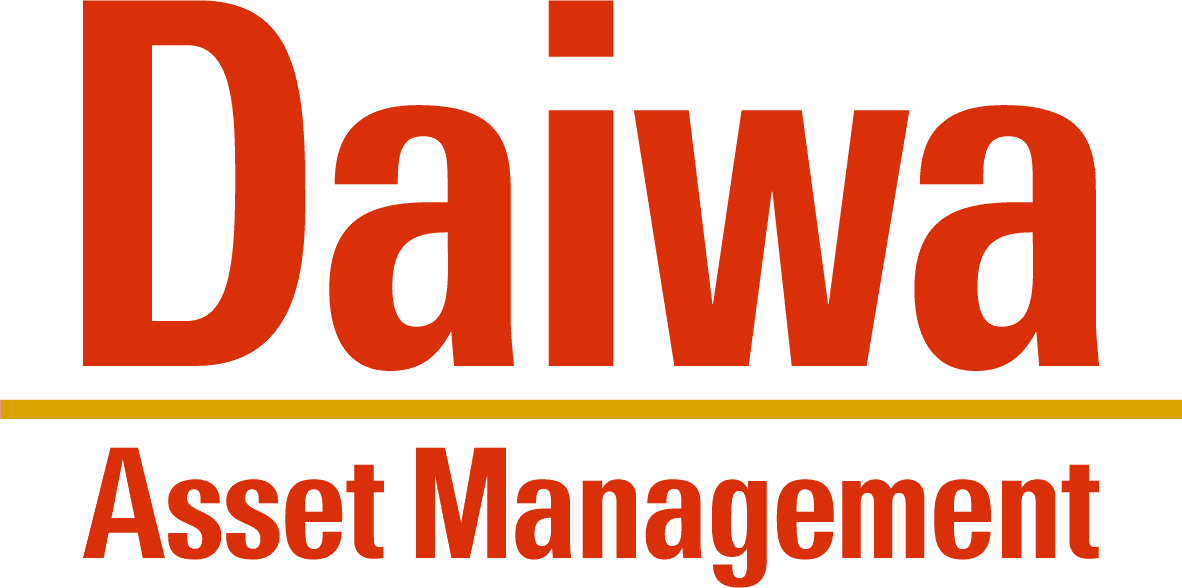Key takeaways
Global performance
The economies, markets, and currencies of other countries are expected to begin to catch up after long US outperformance.
Monetary policy
The European Central Bank and People’s Bank of China have begun significant easing; but US monetary policy isn’t expected to be as accommodative.
Fiscal support
The rest of the world is planning to spend more on defense and infrastructure, led by Germany, which agreed on a draft budget.
The Fourth of July, the US Independence Day, is good a time to take stock of the state of the United States. The first half of the year saw US stocks underperform the UK,1 the US dollar reach a three-year low,2 and Germany lead the way on fiscal support through defense and infrastructure spending. How does this all add up to for the sustainability of American exceptionalism?
This week, we share from both sides of the pond, with UK-based Ben Jones, Director of Macro Research, and US-based Brian Levitt, Global Market Strategist.
A conversation about American exceptionalism
Ben: I hope you had a happy Fourth.
Brian: Thank you. I always appreciate a good word from our friends across the pond, even if we did part ways a couple of centuries ago.
Ben: We may have parted ways but look at us now. Reunited in print.
Brian: A beautiful friendship. You must be pleased this year. The MSCI United Kingdom US Dollar Index is up 19.26% year to date, compared to 6.20% for the S&P 500 Index.1
Ben: Well sort of. It’s nice to see the UK reclaim its rightful place ahead of the US. But when I look at my portfolio as a UK investor, in the first half of 2025, I see only a 9.00% gain on MSCI United Kingdom Index in pound sterling (GBP) terms, and I’m nursing a loss of 3.05% on my S&P 500 Index position.3 That’s because I’m assuming no currency hedging on the stock positions, the US dollar reached a three-year low at the end of the first half of 2025, and GBP strengthened 9.72% against the dollar in the first half of 2025.2
Brian: That may explain why you’re more focused on the potential end of American exceptionalism than I am. Where we stand often depends on where we sit.
Ben: Perception is reality indeed. I’m sure you’re quite content with a 6.20% year-to-date advance in the S&P 500 Index,1 especially given the political uncertainty and market volatility in US markets during the first half of the year.
Brian: Particularly following two consecutive years of returns greater than 25%.4 That still seems exceptional to me. What do you mean when you talk about the end of US exceptionalism?
Ben: I don’t really like the term “US exceptionalism.” It’s far too blunt to really describe what’s going on now. I think the US stock market has lost some of its shine this year and expectations coming into 2025 were too lofty. But I’m not convinced that US stocks will fall in absolute value over any meaningful time horizon. Rather, I just think that other markets will outperform the US because they’re starting to beat depressed expectations. But I strongly believe the US dollar will weaken further.
That said, I’m convinced the US will still be a brilliant place to live, work, and visit. I enjoyed a recent visit to Texas — great BBQ by the way.
Brian: I assumed as much. Still, you’ve held to your view even as US stocks and bonds have rallied over the past two months.5
Ben: Yes, my view remains unchanged. And as you know so well, markets don’t move in straight lines. My thesis is that the economies, markets, and currencies of other countries will begin to catch up to the US after a prolonged period of its outperformance. And that it’s going to be a bumpy ride with plenty of twists and turns along the way.
Brian: US-based investors have been hearing that for a long time, but they finally saw it play out in the first half of 2025. Is this a case of a broken clock being right twice a day, or something more sustainable?
Ben: I believe it’s more sustainable. It’s largely driven by the idea that US growth, relative to the rest of the world, will moderate and that growth across much of the rest of the world may be better than expected.
Brian: Even Federal Reserve (Fed) Chair Jerome Powell suggested that the Fed would likely be lowering interest rates if it wasn’t for the tariffs being imposed by the Trump administration.
Ben: Maybe. I’ll admit to questioning my view that the Fed wouldn’t cut rates in 2025. I’m sticking with it for now but will pivot if the labor market data worsen. I‘m not dogmatic, but I maintain, for now, that US monetary policy will likely not be as accommodative as it otherwise might have been. But other central banks, including the European Central Bank and the People’s Bank of China, have already begun significant easing.
I think the more meaningful, and underappreciated, story is that the rest of the world is getting its act together and spending more on defense and infrastructure, led by Germany. Last week, the German federal government agreed on its draft budget for 2025. It plans to spend more than 200 billion euros on defense and infrastructure this year and to raise more than 3% of gross domestic product in new debt. That represents a large increase in bond issuance.
Brian: Fiscal support from the traditionally austere Germans. Wow! Perhaps it would have been more helpful during the Global Financial Crisis or the pandemic.
Ben: I agree, but it didn’t happen then. The US fiscal response during those periods strongly supported the growth that helped sustain American exceptionalism. Now the fiscal momentum is coming from Germany. 2025 is going to be one for the history books.
Brian: At the same time, valuations outside the US have been more attractive.6
Ben: That’s right. I would also argue that the US dollar has remained overvalued compared to the currencies of its major trading partners. It likely has further room to decline.
Brian: What’s driving the dollar’s decline? It doesn’t appear to be an exodus of foreign investors from US dollar assets.
Ben: Nope, no exodus as far as I can see. Confidence in US financial assets is challenged, but we’re not seeing a total loss of confidence. Rather, in my opinion, the dollar’s decline reflects foreign investors wanting to diversify their large dollar positions, and some will likely choose to hedge those positions. So far, we’re not seeing much evidence in things like exchange-traded fund (ETF) flows that there are large sales of US assets, but rather new non-US money is finding its way into non-US markets. The view that “There Is No Alternative (TINA)” to US markets has faded. TINA has turned.
Brian: Could you imagine a scenario in which foreign investors did lose complete confidence in US assets?
Ben: I can, although that would require a significant deterioration in faith in US institutions. Questions are being asked, but we’re not there yet. I think we have to have faith that checks and balances in the US will prevail.
Brian: Then let us hope for continued independence at the Fed.
Ben: Absolutely. I don’t know about you, but I wouldn’t want to be in Chair Powell’s seat.
Brian: The end of American exceptionalism sounds more like an argument for diversification into non-US stocks, bonds, and currencies.
Ben: Yes. The US will continue to have unique qualities that set it apart from many other nations. I will plan to continue to invest in innovative US businesses, engage with US culture, and travel to the States as often as I can. I have simply increased my exposure to assets outside the US and expect to maintain those positions. And I’m hedging my currency exposure for the first time, well ever.
Brian: I am glad we cleared that up.
Ben: So am I.
Brian: Regardless of whether American exceptionalism is fading, one thing remains constant: the enduring strength of transatlantic dialogue.
—
Originally Posted on July 7, 2025
Debating the state of US exceptionalism for stock investors by Invesco US
Footnotes
- Source: Bloomberg L.P., June 30, 2025, based on the year-to-date return of the MSCI UK US Total Return Index (USD) (+19.26%) and the S&P 500 Index (+6.20%).
- Source: Bloomberg L.P., June 30, 2025, based on the US Dollar Index, which measures the value of the US dollar versus a trade-weighted basket of currencies.
- Source: Bloomberg L.P., June 30, 2025, based on the return of the S&P 500 Index converted from US dollars to British pounds from Dec. 31, 2024 to June 30, 2025.
- Source: Bloomberg L.P., June 30, 2025. The S&P 500 Index returned 26.79% and 25.73% in 2023 and 2024, respectively.
- Source: Bloomberg L.P., June 30, 2025, based on the return of the S&P 500 Index (+11.70%) and the Bloomberg US Treasury Index (+0.21%) since the beginning of May 2025.
- Source: Bloomberg L.P., June 30, 2025, based on the price to trailing 12 months earnings of the S&P 500 Index (26.3x) and MSCI All Country World (ACWI) ex USA Index (16.9x).
Join The Conversation
For specific platform feedback and suggestions, please submit it directly to our team using these instructions.
If you have an account-specific question or concern, please reach out to Client Services.
We encourage you to look through our FAQs before posting. Your question may already be covered!
Leave a Reply
Disclosure: Invesco US
This does not constitute a recommendation of any investment strategy or product for a particular investor. Investors should consult a financial advisor/financial consultant before making any investment decisions. Invesco does not provide tax advice. The tax information contained herein is general and is not exhaustive by nature. Federal and state tax laws are complex and constantly changing. Investors should always consult their own legal or tax professional for information concerning their individual situation. The opinions expressed are those of the authors, are based on current market conditions and are subject to change without notice. These opinions may differ from those of other Invesco investment professionals.
NOT FDIC INSURED
MAY LOSE VALUE
NO BANK GUARANTEE
All data provided by Invesco unless otherwise noted.
Invesco Distributors, Inc. is the US distributor for Invesco Ltd.’s Retail Products and Collective Trust Funds. Institutional Separate Accounts and Separately Managed Accounts are offered by affiliated investment advisers, which provide investment advisory services and do not sell securities. These firms, like Invesco Distributors, Inc., are indirect, wholly owned subsidiaries of Invesco Ltd.
©2024 Invesco Ltd. All rights reserved.
Disclosure: Interactive Brokers Third Party
Information posted on IBKR Campus that is provided by third-parties does NOT constitute a recommendation that you should contract for the services of that third party. Third-party participants who contribute to IBKR Campus are independent of Interactive Brokers and Interactive Brokers does not make any representations or warranties concerning the services offered, their past or future performance, or the accuracy of the information provided by the third party. Past performance is no guarantee of future results.
This material is from Invesco US and is being posted with its permission. The views expressed in this material are solely those of the author and/or Invesco US and Interactive Brokers is not endorsing or recommending any investment or trading discussed in the material. This material is not and should not be construed as an offer to buy or sell any security. It should not be construed as research or investment advice or a recommendation to buy, sell or hold any security or commodity. This material does not and is not intended to take into account the particular financial conditions, investment objectives or requirements of individual customers. Before acting on this material, you should consider whether it is suitable for your particular circumstances and, as necessary, seek professional advice.
Disclosure: Forex
There is a substantial risk of loss in foreign exchange trading. The settlement date of foreign exchange trades can vary due to time zone differences and bank holidays. When trading across foreign exchange markets, this may necessitate borrowing funds to settle foreign exchange trades. The interest rate on borrowed funds must be considered when computing the cost of trades across multiple markets.
Disclosure: ETFs
Any discussion or mention of an ETF is not to be construed as recommendation, promotion or solicitation. All investors should review and consider associated investment risks, charges and expenses of the investment company or fund prior to investing. Before acting on this material, you should consider whether it is suitable for your particular circumstances and, as necessary, seek professional advice.



















I think a forecast I heard months ago is exactly right on track – see, I figured there would be a crash in the fall of 2024, but I don’t have my election year correct. Since this is his year ONE as President, that makes the next likely crash by March of next year, April at the outside, in his year TWO.